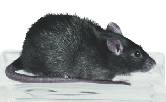
WEDNESDAY, Jan. 11 (HealthDay News) — Researchers have identified a protein in muscle cells that triggers some of the health benefits of exercise in mice.
“There has been a feeling in the field that exercise ‘talks to’ various tissues in the body,” said the study’s senior author, Bruce Spiegelman, a cell biologist at Dana-Farber Cancer Institute in Boston and a professor of cell biology at Harvard Medical School, in a news release from the centers. “But the question has been, how?”
Known as “irisin” (after the Greek messenger goddess, Iris), the protein acts as a chemical messenger and may eventually be used to develop new treatments for diabetes, obesity and possibly cancer, Spiegelman and colleagues said. Their report is published online Jan. 11 in the journal Nature.
Exercise causes irisin levels to rise, the researchers explained. They found the protein has “powerful effects” on adipose, or deposits of white fat under the skin that store extra calories and contribute to obesity.
After injecting the protein into sedentary mice that were obese and prediabetic, the protein activated genes that convert white fat into “good” brown fat, which burns more calories than exercise alone.
However, they noted that irisin does not build muscle so it can never replace exercise.
The report also revealed that irisin improved glucose tolerance in mice that received a high-fat diet. After 10 days of treatment with irisin, the mice had better-controlled blood sugar and insulin levels, preventing the onset of diabetes and helping them to lose excess weight.
“It’s exciting to find a natural substance connected to exercise that has such clear therapeutic potential,” said study first author Dr. Pontus Bostrom, a postdoctoral fellow in the Spiegelman lab, in the news release.
The researchers said it’s possible that an irisin-based drug could be ready for clinical trial in humans within two years.
Ember Therapeutics, a Boston startup company co-founded by Spiegelman, has rights to the drug’s development.
While the findings of the new study might be promising, scientists note that research involving animals often fails to produce similar results in humans.
The U.S. National Institutes of Health sponsored the research.
More information
The U.S. National Institutes of Health provides more information on the health benefits of exercise.

